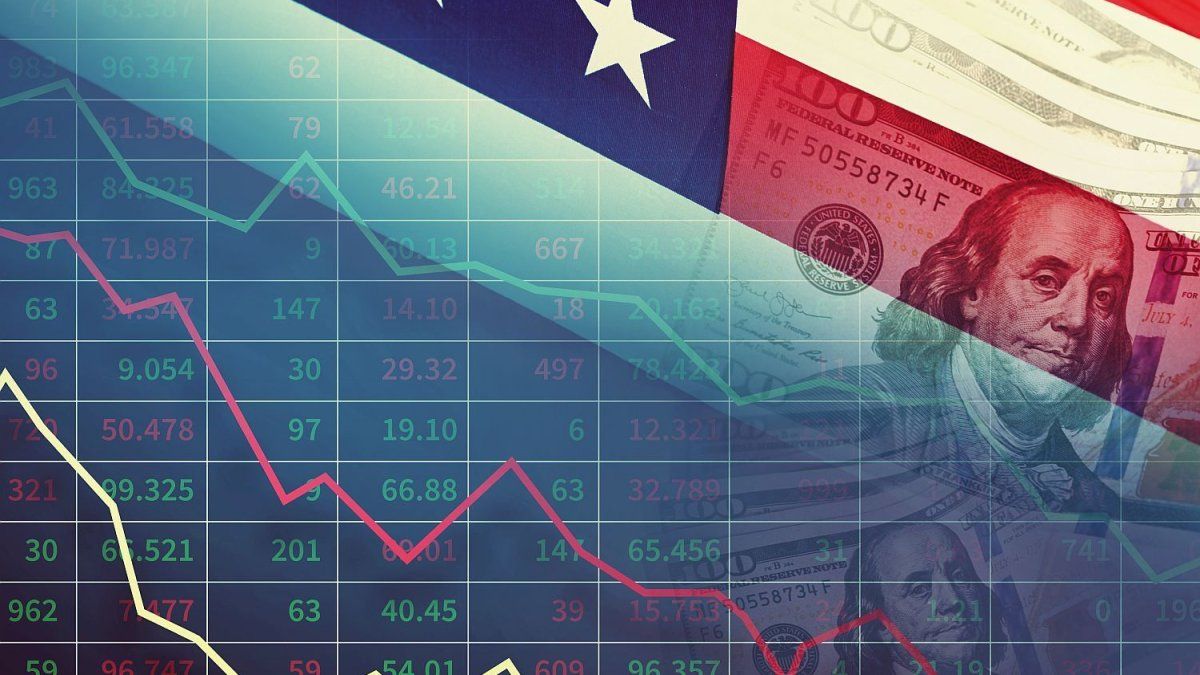The week will be intense in the markets due to the publication of numerous results and macroeconomic data relevant to the United States economy in an electoral context. Polls indicate that the result of the elections, scheduled for November 5, appears very close, with Donald Trump gaining an advantage over Kamala Harris. Barclays analysts published a report on the implications of these elections in various areas of the economy. Additionally, this note will address the impact that these events could have in Argentina.
1. Impact on the United States economy
According to Barclays, a return to Trump’s 2017-2018 immigration policies could reduce US payroll gains by 1.5 million a year and cut GDP growth by almost a percentage point. “Continuing with Biden’s policies would likely also reduce immigration, but would affect payrolls and economic growth by only half that amount.”
As for Trump’s proposed tariffs, they would reverse decades of trade liberalization, Barclays says. “The restrictions could reduce China’s economic growth by 2 percentage points, that of the US by 1.4 and that of Europe by 0.7. “They would also boost inflation and could force Western central banks to delay monetary easing.”
2. Rates
In a Republican presidency scenario with a divided Congress, investors would likely worry about the inflationary effects of higher tariffs and stricter immigration policies. “Short-term rates would probably rise, but long-term rates not as muchas the expiration of some Trump tax cuts would provide little fiscal support to boost economic growth.”
For its part, a Democratic presidency with a divided Congress would be the most bullish scenario for American rates, since there would be little expectation of an inflationary shock. “Inflation-indexed bonds could react to a Trump victory similar to how they did in July, when that possibility seemed high before President Biden withdrew of the contest. “Trump’s proposed tariffs would likely lead to a rise in inflation in the short term, which could move bonds similar to July.”
3. Dollar
If Trump wins a second term, Barclays believes that his protectionist policies (such as tariffs), fiscal stimulus and reduced commitment to NATO They would add strength to the dollar.
Could Trump devalue the dollar? These experts believe that the probability of an intentional devaluation is lowas low-cost policies, such as fiscal consolidation and multilateral devaluation, face coordination challenges, while high-cost policies, such as eroding the Fed’s independence and intervening unilaterally, are too costly.
Ahead of the election, the dollar has decoupled from the value associated with Fed policy, which has been its main driver in recent quarters, due to what Barclays considers “an electoral premium, which we evaluate at around 2%“, reflecting the possible impact of a trade war on the US currency.”
usa markets.jpg
Markets will be volatile this week, amid the electoral contest
Depositphotos
4. Variable income
“In the scenario of a ‘red wave’ where Trump manages to pass a corporate tax cut in Congress, We estimate that it would boost the gains of the S&P 500 by 3%. In a ‘blue wave’ scenario where Democrats win the presidency and both chambers, Harris’ proposed tax increase could reduce corporate profits by 5.5%“says Barclays.
In a possible ‘Trade War 2.0’ under Trump, Tariffs could reduce US companies’ profits by about 5%generating negative pressure on share prices. “We believe that the sectors of materials, consumer discretionary, industrial, technology and health are the most exposed to risk“.
Likewise, these economists estimate that an all-out trade war could reduce European corporate profits by a mid-high digit, with Germany and Italy being the most affected countries.
“The Concerns about tariffs are already reflected in European actionswhich have underperformed US stocks and other markets due to fears of a full-scale trade war. If Harris wins, EU stocks could see this risk premium fade“says Barclays.
5. Impact on emerging markets and Argentina
A second Trump presidency could trigger a sharp increase in defense spending in Asiapotentially approaching Cold War levels if geopolitical tensions rise further. This would put pressure on the budgets of many developing countries as they try to recover from the stimulus spending of the pandemic years.
“A Trump victory could negatively affect the Mexican peso due to possible tariffs and tensions around immigration,” says Barclays.
Investor caution surrounding the US elections, coupled with geopolitical risks and China’s stimulus efforts, have led to low exposure to emerging market assets. “Strong US Dollar Creates Difficult Environment for Emerging Market Assets and complicates the path of monetary policy for some central banks.
Regarding Argentina in particular, a victory for Donald Trump could be politically positive due to Javier Milei’s ideological closeness to Trump and thus improve the relationship with the IMF to reach a new negotiation in 2025.
In the economic aspect, Trump’s protectionism threatens the possibility of expanding exports to the US by imposing a more costly tariff, added to an eventual appreciation of the dollar that would have a direct impact on emerging currencies and the commodities that Argentina exports. .
Source: Ambito
I am a 24-year-old writer and journalist who has been working in the news industry for the past two years. I write primarily about market news, so if you’re looking for insights into what’s going on in the stock market or economic indicators, you’ve come to the right place. I also dabble in writing articles on lifestyle trends and pop culture news.



